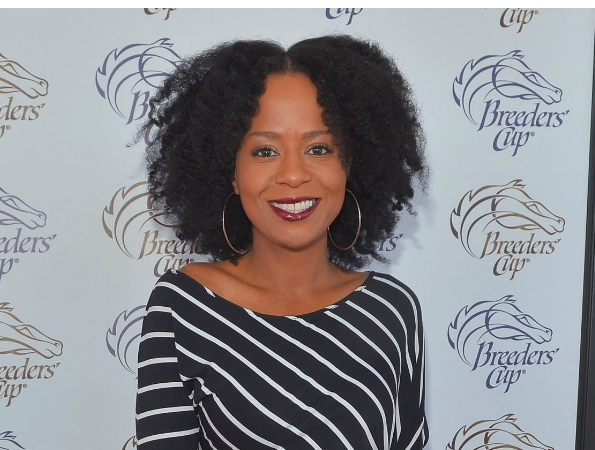Coralie Fargeat: A Rising Star Forging Her Path in Genre Cinema
Coralie Fargeat is a name quickly becoming synonymous with visceral, genre-bending cinema. This French director and screenwriter has carved a unique path in the film industry, garnering critical acclaim and audience fascination with her audacious storytelling and unflinching style. Let’s explore the remarkable achievements of Coralie Fargeat, from her early successes to her current trajectory as a rising star in the world of genre filmmaking.
Early Career Accolades: Laying the Foundation for Success
Fargeat’s journey began with a bang. Her debut short film, “Le télégramme” (2003), a suspenseful drama set during World War II, captured the hearts of critics and audiences alike. The film went on to win a staggering 13 awards at various film festivals, including the prestigious International Competition – Best Short Narrative Film at the Fajr International Film Festival [2005]. This early recognition showcased Fargeat’s raw talent for crafting compelling narratives and building tension.
Following this triumph, Fargeat co-created the comedic miniseries “Les Fées cloches” (2008) with Anne-Elisabeth Blateau. While a departure from the dramatic tone of “Le télégramme,” the series demonstrated Fargeat’s versatility as a director. In 2014, she returned to the short film format with “Reality+,” a thought-provoking science fiction exploration of human connection in a technological age. This short film garnered a nomination for the Jury Award at the renowned Tribeca Film Festival, further solidifying Fargeat’s reputation as a filmmaker to watch.
Awards and Accolades (Table)
| Film | Year | Award | Festival |
|---|---|---|---|
| Le télégramme | 2003 | 13 Awards | Various Film Festivals |
| Reality+ | 2014 | Jury Award Nomination | Tribeca Film Festival |
| Revenge | 2017 | Best Director | Sitges Film Festival |
Revenge: A Genre-Defying Masterpiece
Fargeat’s true breakthrough arrived with her feature film debut, “Revenge” (2017). This audacious neo-Western revenge thriller became an instant cult classic, captivating audiences with its brutal violence, stunning visuals, and feminist themes. The film follows the story of Jen (played by Matilda Lutz), a young woman left for dead in the desert after a brutal assault. Driven by a primal urge for revenge, Jen embarks on a ruthless pursuit of her attackers in a sun-drenched wasteland.
“Revenge” garnered widespread acclaim for its innovative approach to genre. Fargeat masterfully blended visceral violence with stunning cinematography and a pulsating soundtrack, creating a visually captivating and emotionally charged experience. The film broke boundaries with its unflinching portrayal of female rage, prompting discussions about gender roles and the power dynamics within the revenge narrative.
“Revenge” cemented Fargeat’s reputation as a bold and visionary filmmaker. The film earned her the prestigious Best Director award at the Sitges Film Festival alongside numerous other accolades at international film festivals.
Critical Reception of “Revenge” (Table)
| Critic | Publication | Quote |
|---|---|---|
| Katie Walsh | Indiewire | “Revenge’ is a primal scream of rage, a feminist revenge fantasy that’s both shocking and deeply satisfying.” |
| Eric Kohn | IndieWire | “Fargeat stages the violence with a balletic grace, making it both brutal and strangely beautiful.” |
| Justin Chang | Los Angeles Times | “A revenge thriller that’s as stylish as it is savage, ‘Revenge’ announces the arrival of a distinctive new voice in genre filmmaking.” |
Beyond Revenge: Exploring Fargeat’s Style and Influences
Fargeat’s filmmaking style is characterized by its boldness and audacity. She draws inspiration from a diverse range of influences, including iconic genre directors like John Carpenter, David Lynch, and David Cronenberg. This mix of influences contributes to the visceral nature of her films, often blurring the lines between genres and challenging traditional storytelling conventions.
Fargeat’s films are notable for their strong female characters. She breaks away from the traditional portrayal of women in genre films, offering complex and powerful representations of femininity. In “Revenge,” Jen embodies the raw power of female rage, defying societal expectations of passivity often placed upon
women. To further explore this aspect, let’s delve into the concept of the “Final Girl” trope and how Fargeat subverts it in “Revenge.”
Subverting the “Final Girl” Trope
The “Final Girl” trope is a common theme in horror films, particularly slasher movies. It typically portrays a lone female survivor who confronts the killer in a final showdown. While seemingly empowering, these portrayals often rely on the woman conforming to traditional feminine stereotypes – the innocent virgin who survives through luck or resourcefulness.
In “Revenge,” Fargeat dismantles this trope. Jen is anything but innocent. She is a complex character fueled by a primal urge for revenge. Here’s how Fargeat breaks the mold:
- Active Pursuit: Unlike the passive “Final Girl,” Jen actively hunts down her attackers. She takes control of the narrative, refusing to be the victim.
- Moral Ambiguity: Jen’s methods of revenge are brutal and unforgiving. This moral ambiguity challenges the audience’s expectations of a clear-cut hero and villain.
- Reclaiming Sexuality: Fargeat portrays Jen’s sexuality as a source of strength, not vulnerability. This subverts the trope of the virginal “Final Girl” often targeted for her sexuality.
By subverting the “Final Girl” trope, Fargeat offers a more nuanced and powerful representation of female rage and resilience. Jen is not a victim; she is a force to be reckoned with. This challenges societal expectations of how women should react to trauma and empowers viewers to see female characters in a new light.
Feminist Themes in Fargeat’s Work
Fargeat’s films, particularly “Revenge,” delve deeply into feminist themes. She challenges the male gaze by placing women at the center of the narrative and subverting traditional power dynamics. Here’s a closer look:
- Reclaiming the Narrative: In “Revenge,” Jen actively pursues her attackers, refusing to be a passive victim. This shift in power dynamics empowers the female character and challenges the audience’s expectations within the revenge genre.
- Sexuality and Agency: Fargeat portrays female sexuality in a way that is both empowering and complex. Jen reclaims her sexuality as a source of strength throughout her pursuit of revenge.
- Subverting the Male Gaze: Fargeat’s films are not exploitative. While violence is present, it serves a narrative purpose rather than solely for titillation.
The Future of Fargeat’s Filmmaking: Looking Ahead
Following the success of “Revenge,” Fargeat has become a sought-after name in the film industry. Here’s a glimpse into what’s next for this rising star:
- “The Substance” (2024): Fargeat’s latest film, “The Substance,” premiered in 2024. While details remain under wraps, it’s highly anticipated due to Fargeat’s reputation for pushing boundaries.
- Genre Exploration: Fargeat has expressed interest in exploring various genres beyond revenge thrillers. Her ability to blend genres and inject her signature style promises exciting future projects.
- Diversity and Representation: Fargeat’s commitment to strong female characters paves the way for greater diversity and representation in genre filmmaking. Her work is inspiring a new generation of female filmmakers to challenge the status quo.
Conclusion
Coralie Fargeat is a name to remember. Through her bold filmmaking and dedication to complex characters, she is carving a unique path in the film industry. Her ability to blend visceral thrills with social commentary has garnered critical acclaim and audience fascination. With “The Substance” on the horizon, the future of Coralie Fargeat’s filmmaking promises to be as captivating and thought-provoking as ever. As she continues to push boundaries and challenge expectations, one thing remains certain: Coralie Fargeat is a force to be reckoned with in the world of cinema.
Frequently Asked Questions About Coralie Fargeat
What is Coralie Fargeat known for?
Coralie Fargeat is known for her bold, genre-bending films, particularly her debut feature “Revenge,” a feminist revenge thriller that garnered critical acclaim and a cult following.
What are some of Coralie Fargeat’s influences?
Fargeat draws inspiration from classic genre directors like John Carpenter, David Lynch, and David Cronenberg, resulting in a visually striking and narratively unconventional style.
What are some of the themes explored in Coralie Fargeat’s films?
Fargeat’s films often explore themes of female empowerment, revenge, and challenging traditional gender roles within film storytelling.
What is Coralie Fargeat’s latest film?
Fargeat’s most recent film is “The Substance,” which premiered in 2024. Specific plot details are yet to be revealed.
What is the significance of Coralie Fargeat in the film industry?
Coralie Fargeat is a rising star in genre filmmaking, pushing boundaries with her audacious style and strong female characters. Her work is inspiring a new wave of diverse voices and representations within the genre.

